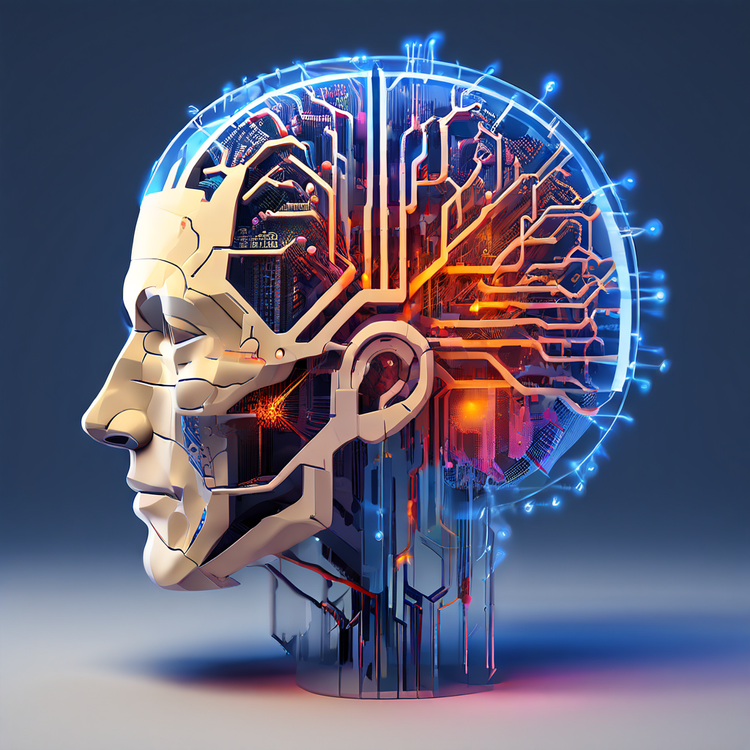From Impossible to Achievable: How AI Transformed My Learning Experience


Imagine standing at the foot of a mountain, gazing up at the summit, eager to hike to the peak. However, the mountain is shrouded in clouds, and the path up is steep and winding. That's how I used to feel when attempting to learn about a difficult biological subject – intimidated, overwhelmed, and unsure of how to proceed. Then, something extraordinary happened. I discovered the power of artificial intelligence (AI) as a learning and writing tool, and everything changed. It was like the fog lifted, revealing a clear path forward.
In my previous post, "Navigating the Complex World of Prions: AI as a Guide and Tool for Writing," I discussed how AI introduced me to abnormally folded proteins called prions and enabled me to delve into many aspects of these proteins including their biology and devastating neurological impact. As detailed in that post, to deepen my understanding, I decided to leverage AI to assist in writing over 25 articles on various prion-related topics that had captured my interest.
In this post, I will describe how AI transformed my approach to self-learning, allowing me to better understand intricate subjects such as prions. While I acknowledge that AI-assisted learning at this stage cannot help someone do more than partially replicate the expertise acquired through conventional academic or professional paths, I contend that AI is already a tremendous resource for self-learners. It presents a significant opportunity for curious individuals to enhance their comprehension of highly complex topics at unprecedented speeds, making it a powerful tool for self-education.
AI's Role in Empowering My Self-Learning
When I first started querying AI on health and biology-related subjects, it was like stepping into a world where the impossible became possible. Despite being a relatively new technology, AI quickly became a cognitive companion, empowering me to learn about specialized biological topics with a level of breadth, depth, and speed that would have been unthinkable considering the slower, more laborious process of studying a subject before AI was available for gathering and reviewing information.
Web searching has been one of the resources I've relied on extensively, but it often involves sifting through numerous results and deciding which information is most relevant. This process can be time-consuming and lead to information overload. In contrast, AI revolutionized my learning experience by enabling me to quickly identify and assimilate relevant and valuable information.
Of course, before AI, it was easy to pull up a Wikipedia page and get a wealth of background information on numerous subjects, including prions. But, what if such a page doesn't provide the specific details I'm seeking? Or what if the information is confusing, and I need further clarification?
This is where the transformative potential of AI-assisted learning shines. AI delivers information not only with tremendous speed, but also in a personalized and interactive manner. Using AI is like having a brilliant and tireless mentor by my side, capable of swiftly responding to countless queries and adeptly participating in conversations and brainstorming sessions.
Without the assistance of AI, delving into scientific subjects as a non-expert such as myself is particularly challenging. The often technical nature of such information, dispersed across numerous articles, expert talks, interviews, and scientific papers, could easily overwhelm even highly-motivated learners. But with AI, for example on the topic of prions, I've begun piecing together a nuanced understanding that far surpasses what I could have feasibly achieved before. Whenever I encounter difficult-to-understand information, my AI mentors are there to explain it in terms I can comprehend and internalize.
In short, the vast amount of information AI offers, combined with its patience, regardless of how many times I request clarification, reiteration, or further exploration, profoundly upgraded my ability to acquire and absorb information. The availability of AI is like having an unlimited number of experts at my disposal, consistently prepared to address my queries and help me gain better insights into almost any topic I choose.
AI and Traditional Expertise: Acknowledging the Differences
While I'm excited about the incredible support AI provides, I must emphasize that I do not believe AI at this stage can help someone closely match the expertise acquired through conventional academic and professional paths. Mastering a scientific field, for instance, typically requires focused, long-term study and hands-on experience in a lab or doing fieldwork. As capable as AI now is, I view it as a tool that can only help me somewhat emulate aspects of the expertise gained through such dedicated and immersive environments.
Despite this limitation, I believe that my experience with this technology demonstrates AI's ability to significantly improve how self-learners break down and digest complex information. I'm convinced that AI already has the capacity to empower countless individuals to engage with dense topics that prior to AI would have seemed beyond reach. And as AI continues to advance, its potential for supporting self-directed learning will likely continue to grow.
The Need for User Effort and Diligence
So far in this post, I've highlighted the ways AI has significantly improved my self-education, enabling me to approach scientific subjects with greater confidence and success. AI has transformed the once-daunting challenge I faced in understanding scientific topics into a more accessible and achievable pursuit. However, I want to emphasize that even with the capabilities of current AI applications, effective use—especially when working on multifaceted or nuanced subject matter—still requires substantial effort from users, particularly those who aim to create well-crafted content based on their AI-assisted learning, as I do.
Some may assume that AI makes acquiring information and generating high-quality content nearly effortless. However, my extensive experience has revealed another reality. I've realized the importance of active engagement, critical thinking, and curiosity in maximizing the benefits of this technology. From what I've found, users must be especially engaged in verifying the accuracy of the information and content they gather. Although current AI applications can quite easily elevate almost anybody's learning and writing, it remains crucial for users to strive for excellence in their AI-assisted projects.
More on Ensuring the Quality of AI-assisted Projects
In an upcoming post, I will describe the overall approach I'm taking to try to maintain high-quality results from my AI-assisted learning and writing. Key topics will include the importance I place on selecting and utilizing the most suitable AI applications, my method of actively engaging with AI to draft content, and my fact-checking process. Additionally, I will stress the value I see in supplementing AI-assisted learning with insights from traditional resources such as books, articles, and videos, which remain valuable in the age of AI. By the end of the post, it should be clear that effectively using any of the current AI tools, whether for acquiring an in-depth understanding of a subject or composing well-crafted written work, is far from being an effortless or simple process.
